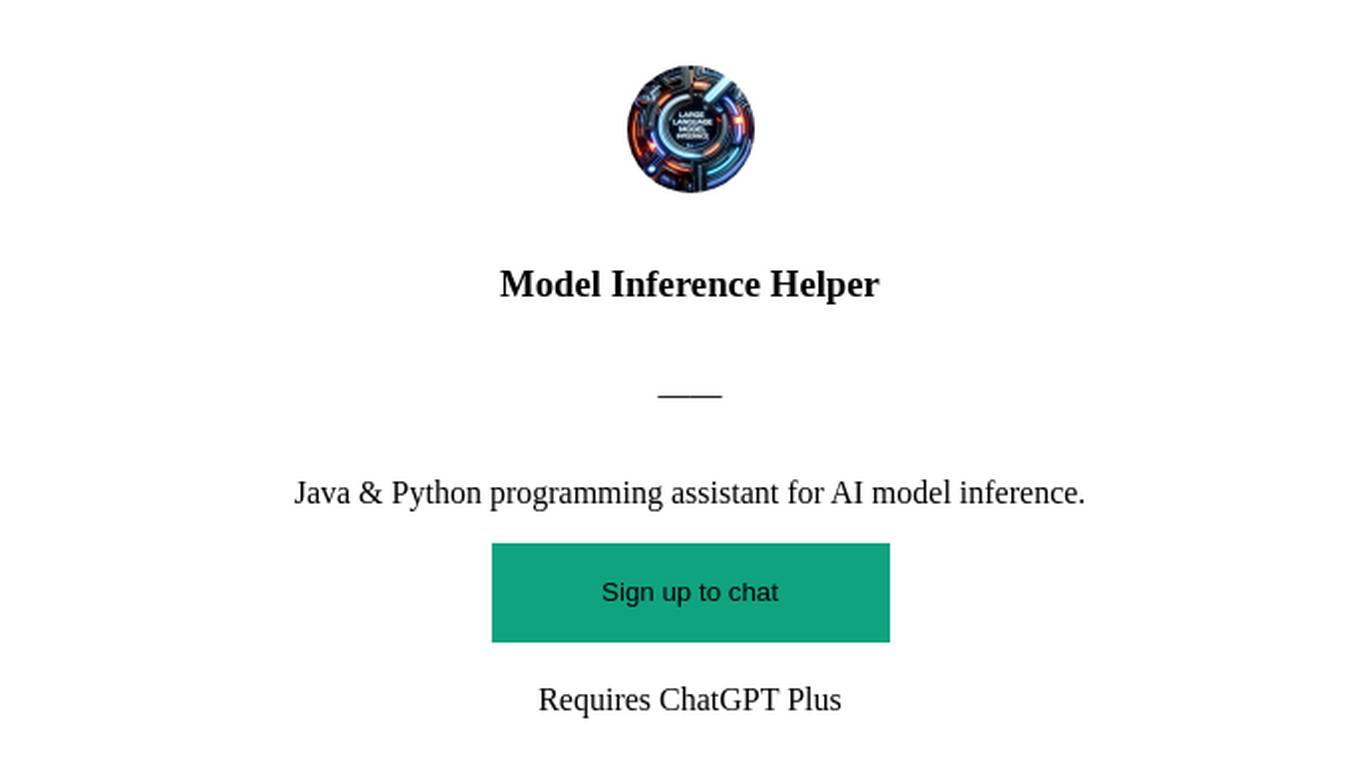Best AI tools for< Run Inference With Stabletoolbench >
20 - AI tool Sites
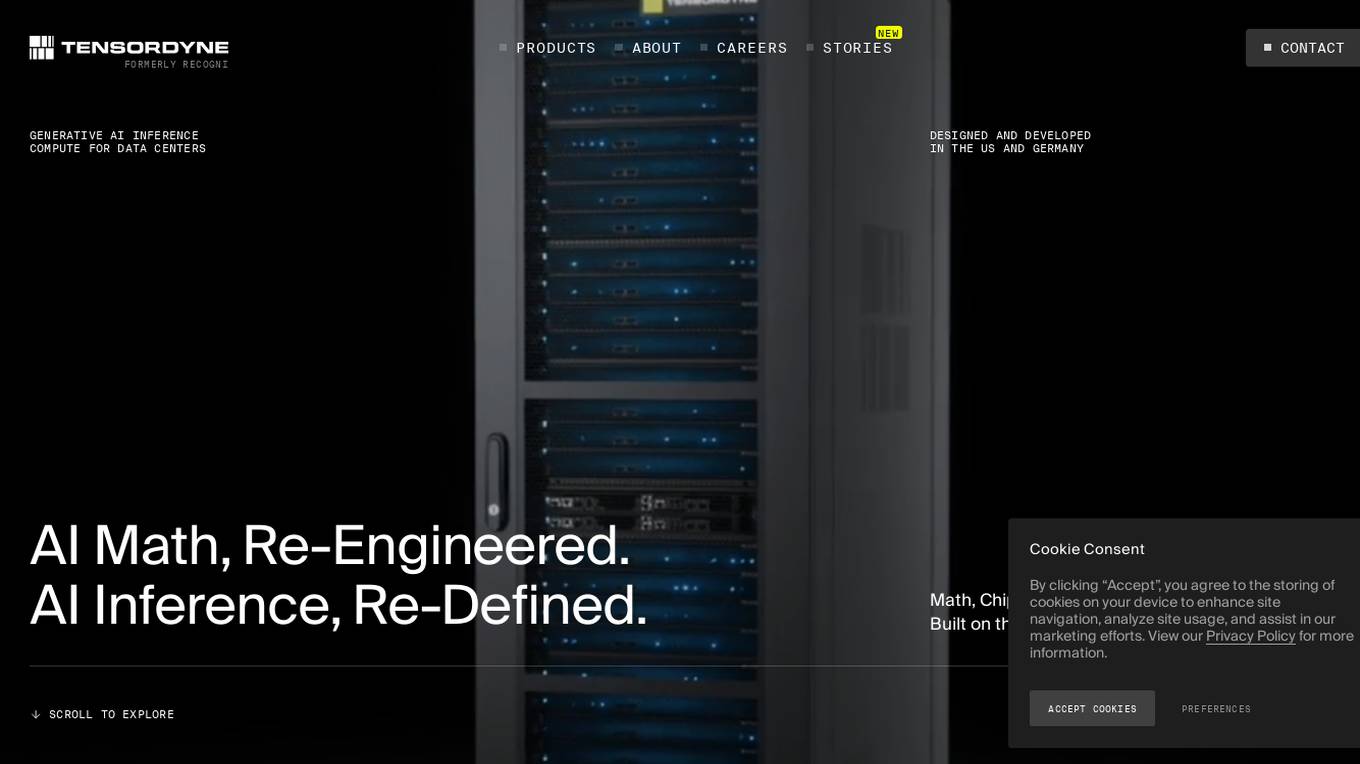
Tensordyne
Tensordyne is a generative AI inference compute tool designed and developed in the US and Germany. It focuses on re-engineering AI math and defining AI inference to run the biggest AI models for thousands of users at a fraction of the rack count, power, and cost. Tensordyne offers custom silicon and systems built on the Zeroth Scaling Law, enabling breakthroughs in AI technology.
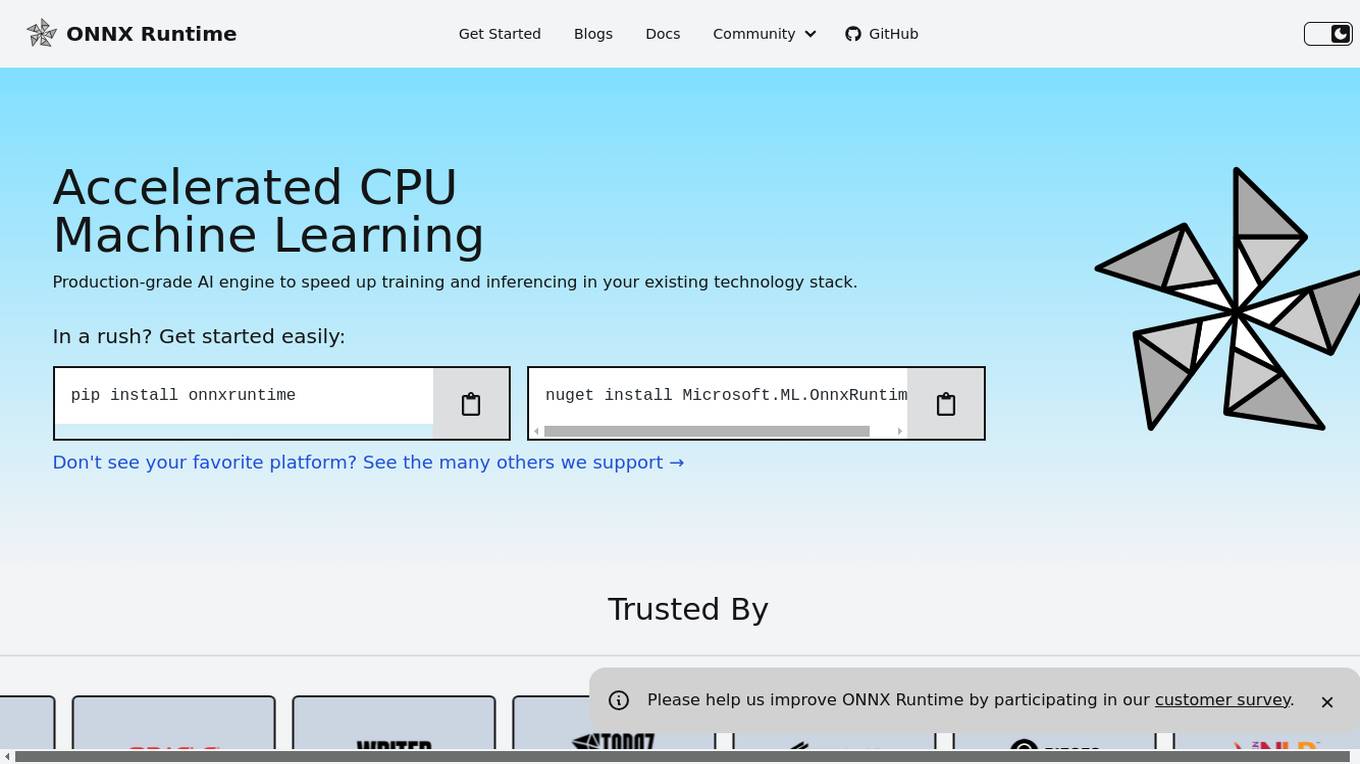
ONNX Runtime
ONNX Runtime is a production-grade AI engine designed to accelerate machine learning training and inferencing in various technology stacks. It supports multiple languages and platforms, optimizing performance for CPU, GPU, and NPU hardware. ONNX Runtime powers AI in Microsoft products and is widely used in cloud, edge, web, and mobile applications. It also enables large model training and on-device training, offering state-of-the-art models for tasks like image synthesis and text generation.

Groq
Groq is a fast AI inference tool that offers GroqCloud™ Platform and GroqRack™ Cluster for developers to build and deploy AI models with ultra-low-latency inference. It provides instant intelligence for openly-available models like Llama 3.1 and is known for its speed and compatibility with other AI providers. Groq powers leading openly-available AI models and has gained recognition in the AI chip industry. The tool has received significant funding and valuation, positioning itself as a strong challenger to established players like Nvidia.
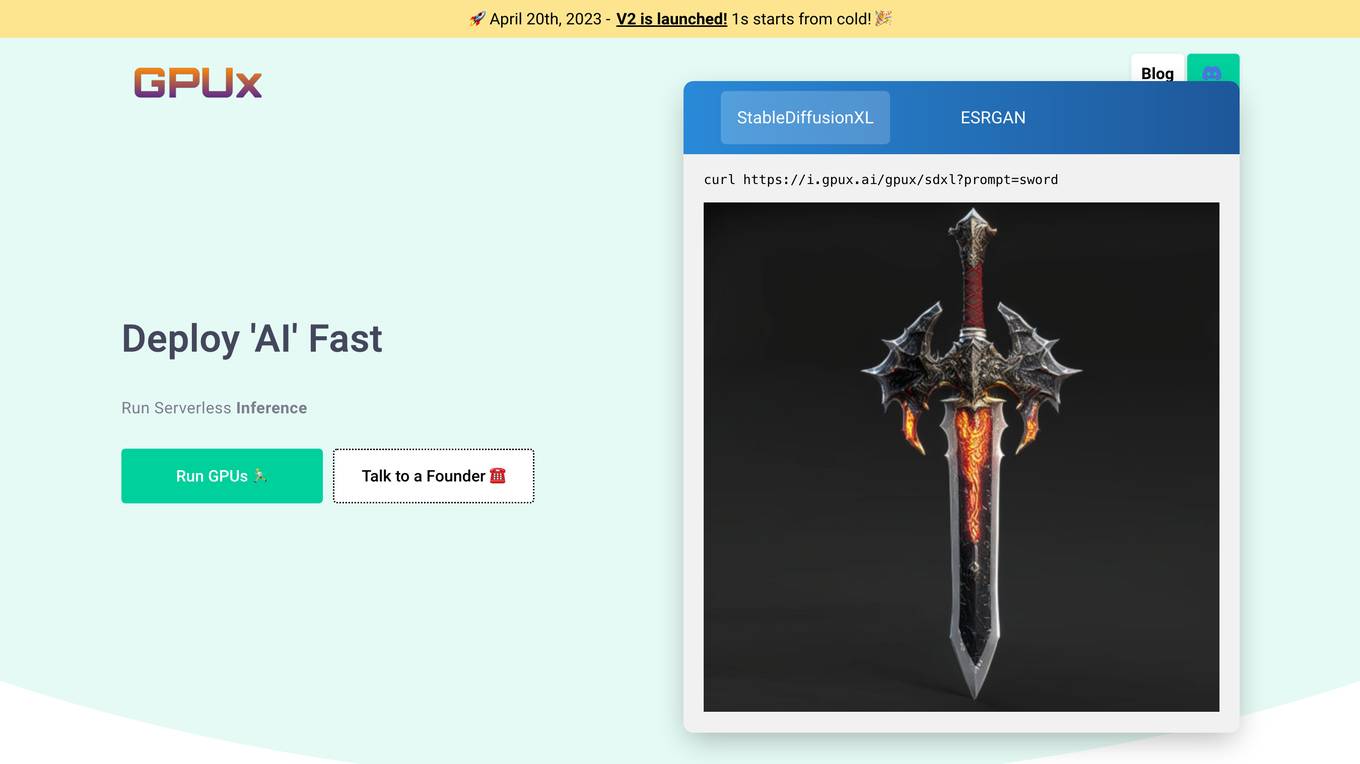
GPUX
GPUX is a cloud platform that provides access to GPUs for running AI workloads. It offers a variety of features to make it easy to deploy and run AI models, including a user-friendly interface, pre-built templates, and support for a variety of programming languages. GPUX is also committed to providing a sustainable and ethical platform, and it has partnered with organizations such as the Climate Leadership Council to reduce its carbon footprint.
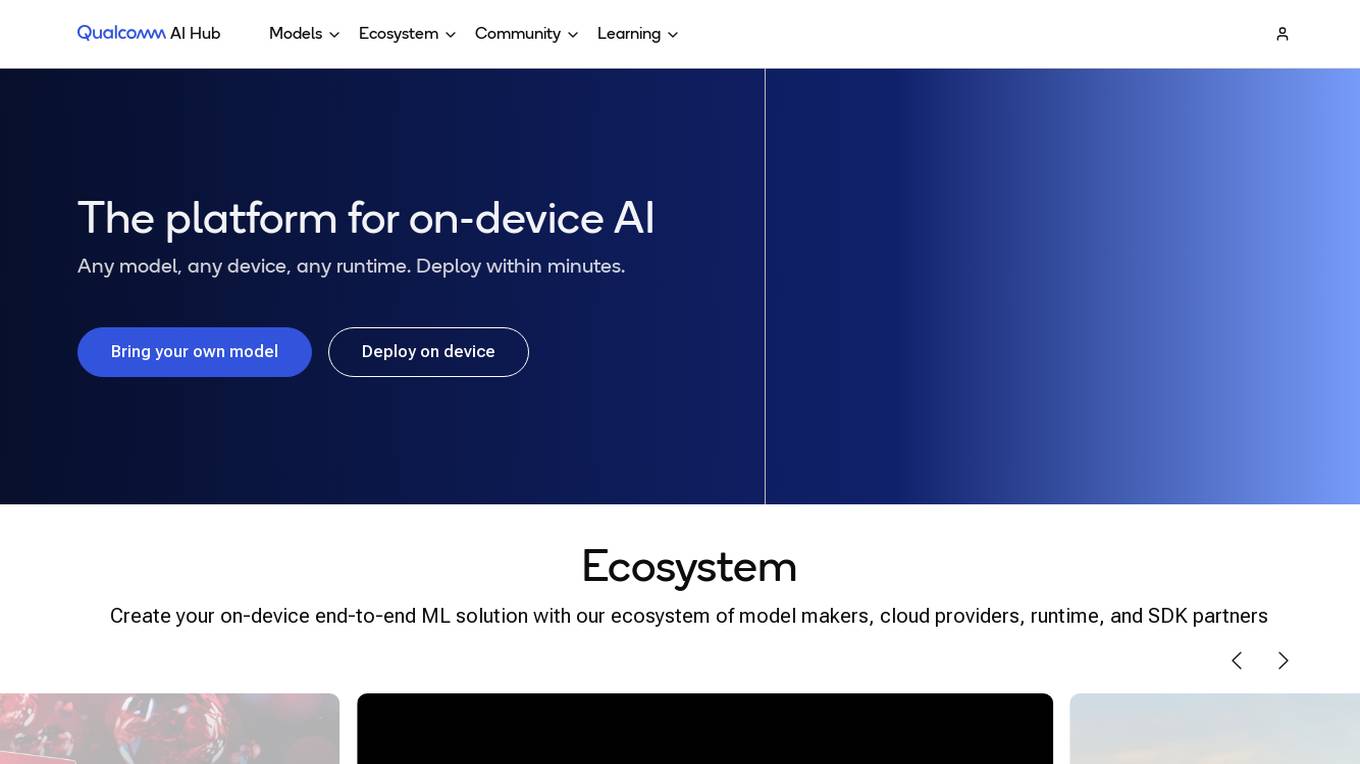
Qualcomm AI Hub
Qualcomm AI Hub is a platform that allows users to run AI models on Snapdragon® 8 Elite devices. It provides a collaborative ecosystem for model makers, cloud providers, runtime, and SDK partners to deploy on-device AI solutions quickly and efficiently. Users can bring their own models, optimize for deployment, and access a variety of AI services and resources. The platform caters to various industries such as mobile, automotive, and IoT, offering a range of models and services for edge computing.
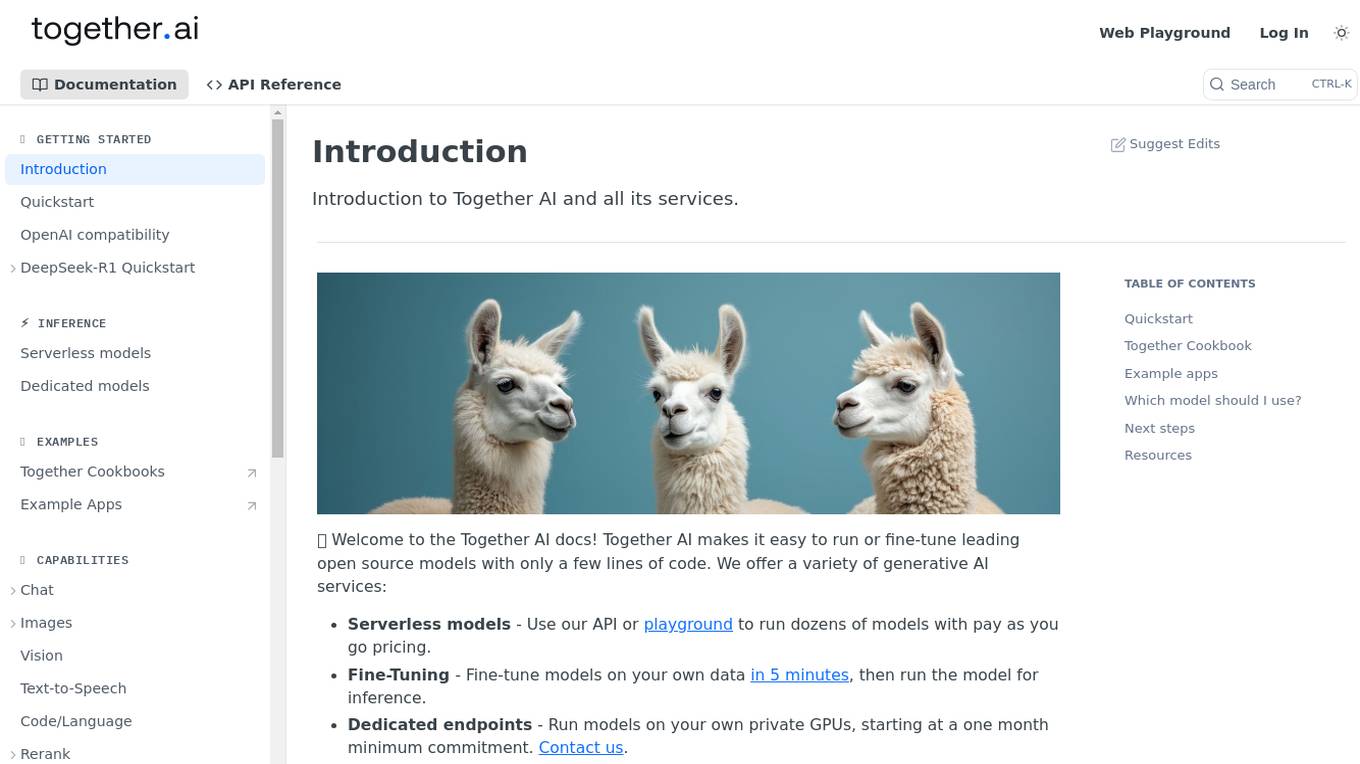
Together AI
Together AI is an AI tool that offers a variety of generative AI services, including serverless models, fine-tuning capabilities, dedicated endpoints, and GPU clusters. Users can run or fine-tune leading open source models with only a few lines of code. The platform provides a range of functionalities for tasks such as chat, vision, text-to-speech, code/language reranking, and more. Together AI aims to simplify the process of utilizing AI models for various applications.
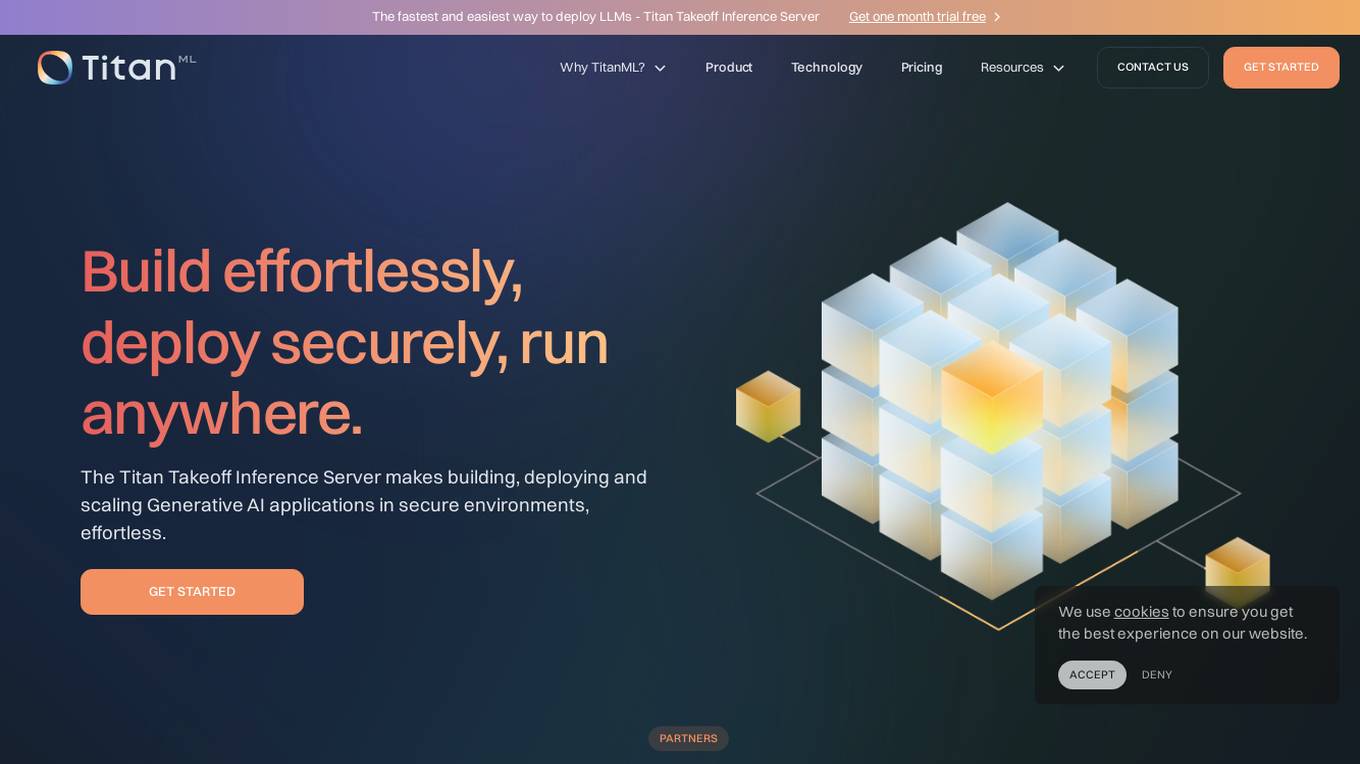
TitanML
TitanML is a platform that provides tools and services for deploying and scaling Generative AI applications. Their flagship product, the Titan Takeoff Inference Server, helps machine learning engineers build, deploy, and run Generative AI models in secure environments. TitanML's platform is designed to make it easy for businesses to adopt and use Generative AI, without having to worry about the underlying infrastructure. With TitanML, businesses can focus on building great products and solving real business problems.
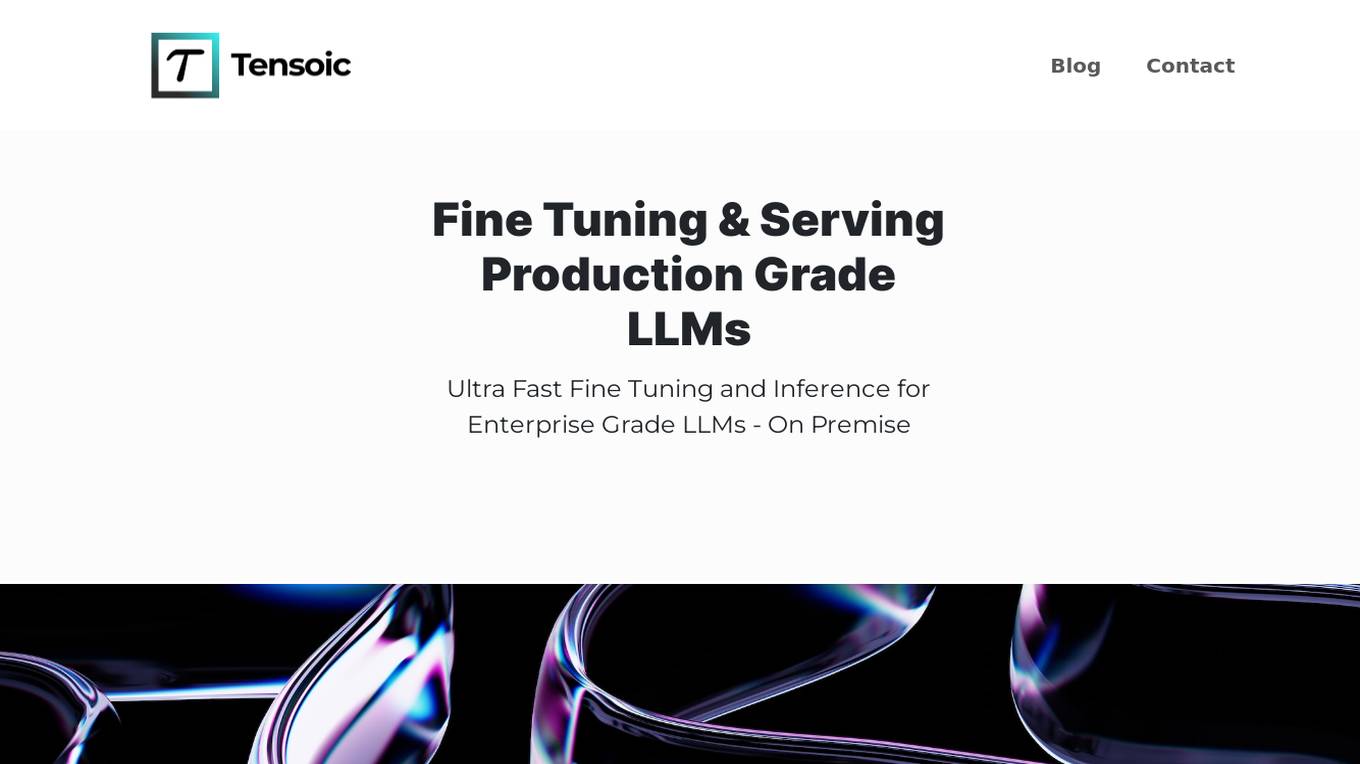
Tensoic AI
Tensoic AI is an AI tool designed for custom Large Language Models (LLMs) fine-tuning and inference. It offers ultra-fast fine-tuning and inference capabilities for enterprise-grade LLMs, with a focus on use case-specific tasks. The tool is efficient, cost-effective, and easy to use, enabling users to outperform general-purpose LLMs using synthetic data. Tensoic AI generates small, powerful models that can run on consumer-grade hardware, making it ideal for a wide range of applications.

Mystic.ai
Mystic.ai is an AI tool designed to deploy and scale Machine Learning models with ease. It offers a fully managed Kubernetes platform that runs in your own cloud, allowing users to deploy ML models in their own Azure/AWS/GCP account or in a shared GPU cluster. Mystic.ai provides cost optimizations, fast inference, simpler developer experience, and performance optimizations to ensure high-performance AI model serving. With features like pay-as-you-go API, cloud integration with AWS/Azure/GCP, and a beautiful dashboard, Mystic.ai simplifies the deployment and management of ML models for data scientists and AI engineers.
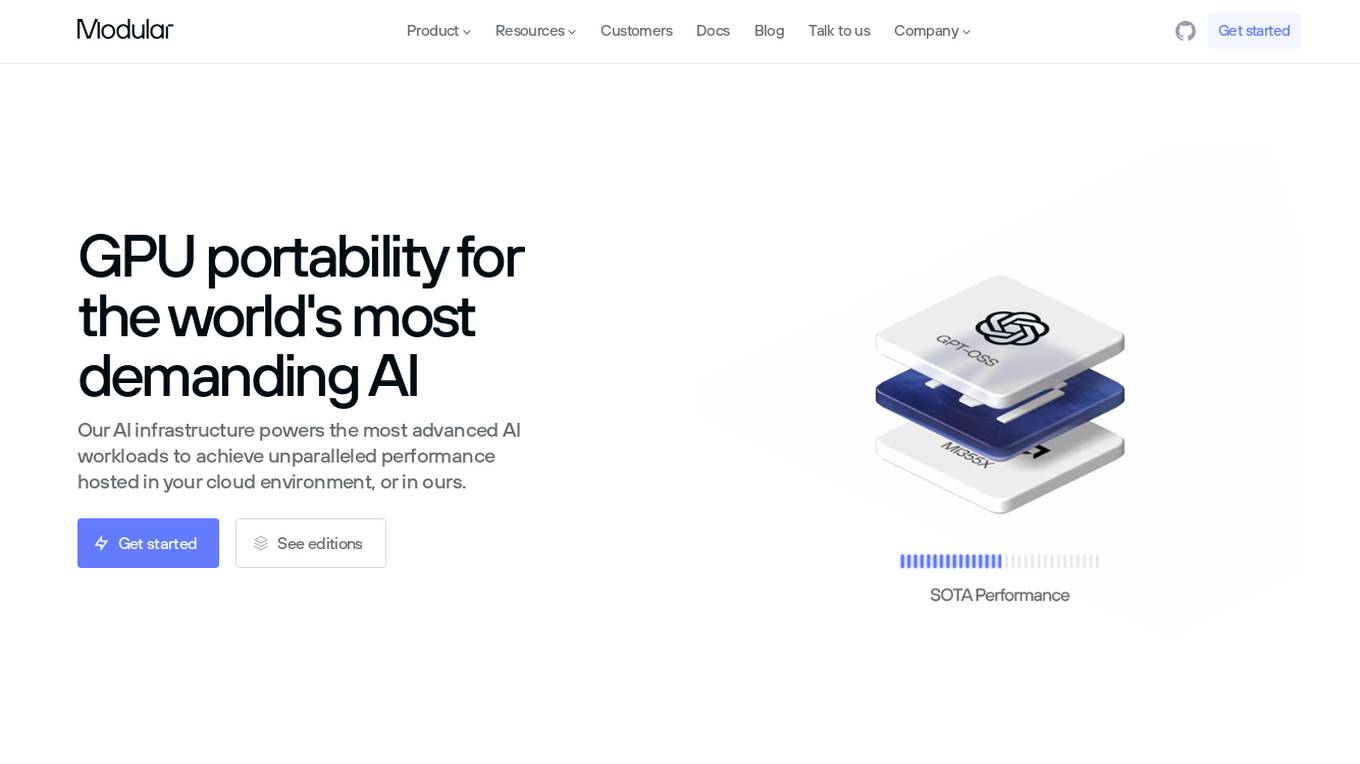
Modular
Modular is a fast, scalable Gen AI inference platform that offers a comprehensive suite of tools and resources for AI development and deployment. It provides solutions for AI model development, deployment options, AI inference, research, and resources like documentation, models, tutorials, and step-by-step guides. Modular supports GPU and CPU performance, intelligent scaling to any cluster, and offers deployment options for various editions. The platform enables users to build agent workflows, utilize AI retrieval and controlled generation, develop chatbots, engage in code generation, and improve resource utilization through batch processing.
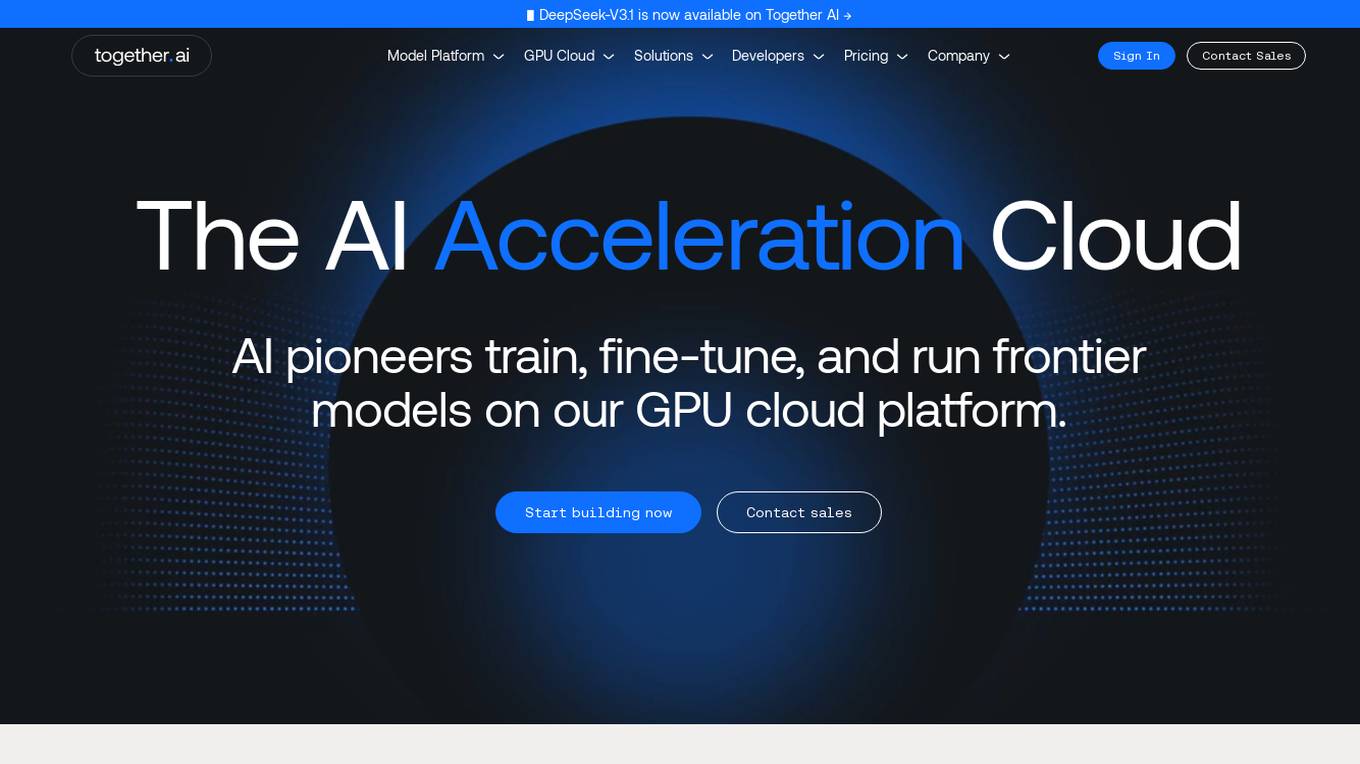
Together AI
Together AI is an AI Acceleration Cloud platform that offers fast inference, fine-tuning, and training services. It provides self-service NVIDIA GPUs, model deployment on custom hardware, AI chat app, code execution sandbox, and tools to find the right model for specific use cases. The platform also includes a model library with open-source models, documentation for developers, and resources for advancing open-source AI. Together AI enables users to leverage pre-trained models, fine-tune them, or build custom models from scratch, catering to various generative AI needs.

Modal
Modal is a high-performance cloud platform designed for developers, AI data, and ML teams. It offers a serverless environment for running generative AI models, large-scale batch jobs, job queues, and more. With Modal, users can bring their own code and leverage the platform's optimized container file system for fast cold boots and seamless autoscaling. The platform is engineered for large-scale workloads, allowing users to scale to hundreds of GPUs, pay only for what they use, and deploy functions to the cloud in seconds without the need for YAML or Dockerfiles. Modal also provides features for job scheduling, web endpoints, observability, and security compliance.
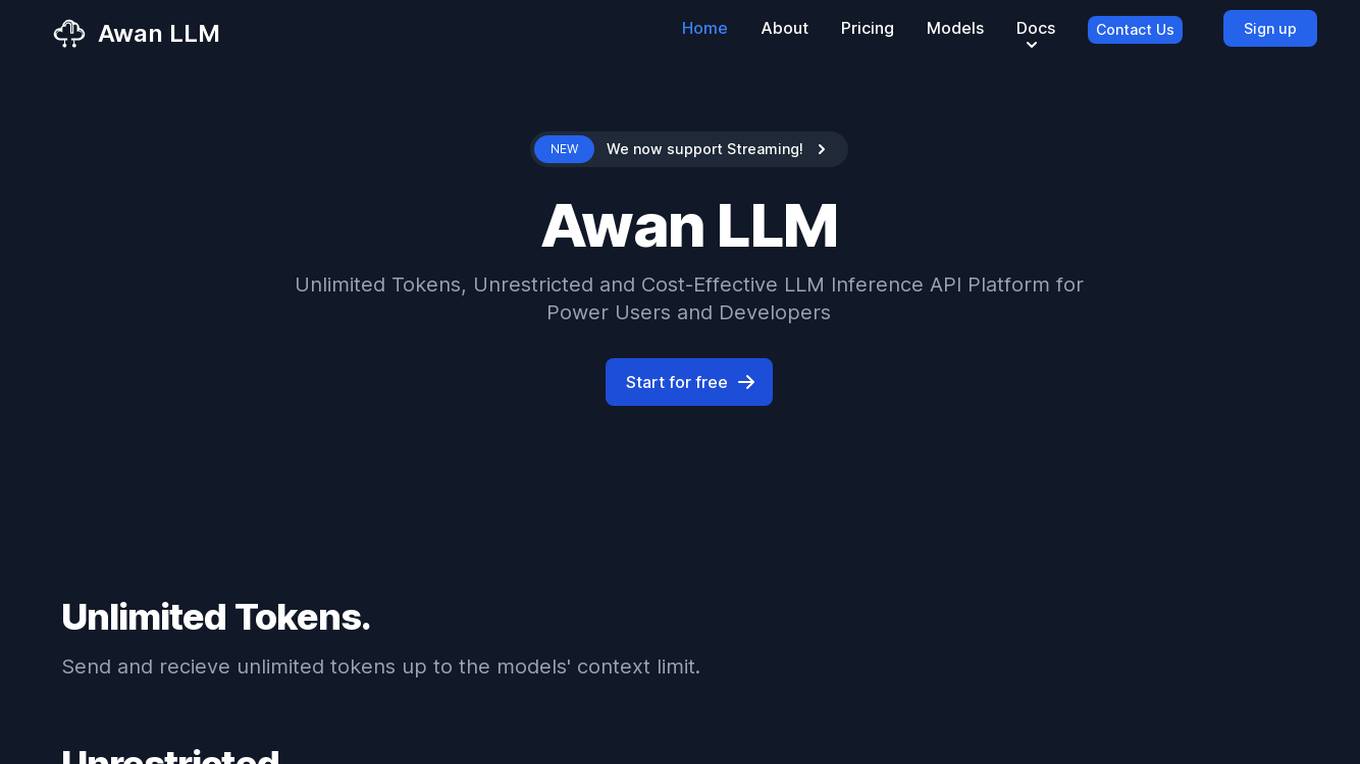
Awan LLM
Awan LLM is an AI tool that offers an Unlimited Tokens, Unrestricted, and Cost-Effective LLM Inference API Platform for Power Users and Developers. It allows users to generate unlimited tokens, use LLM models without constraints, and pay per month instead of per token. The platform features an AI Assistant, AI Agents, Roleplay with AI companions, Data Processing, Code Completion, and Applications for profitable AI-powered applications.
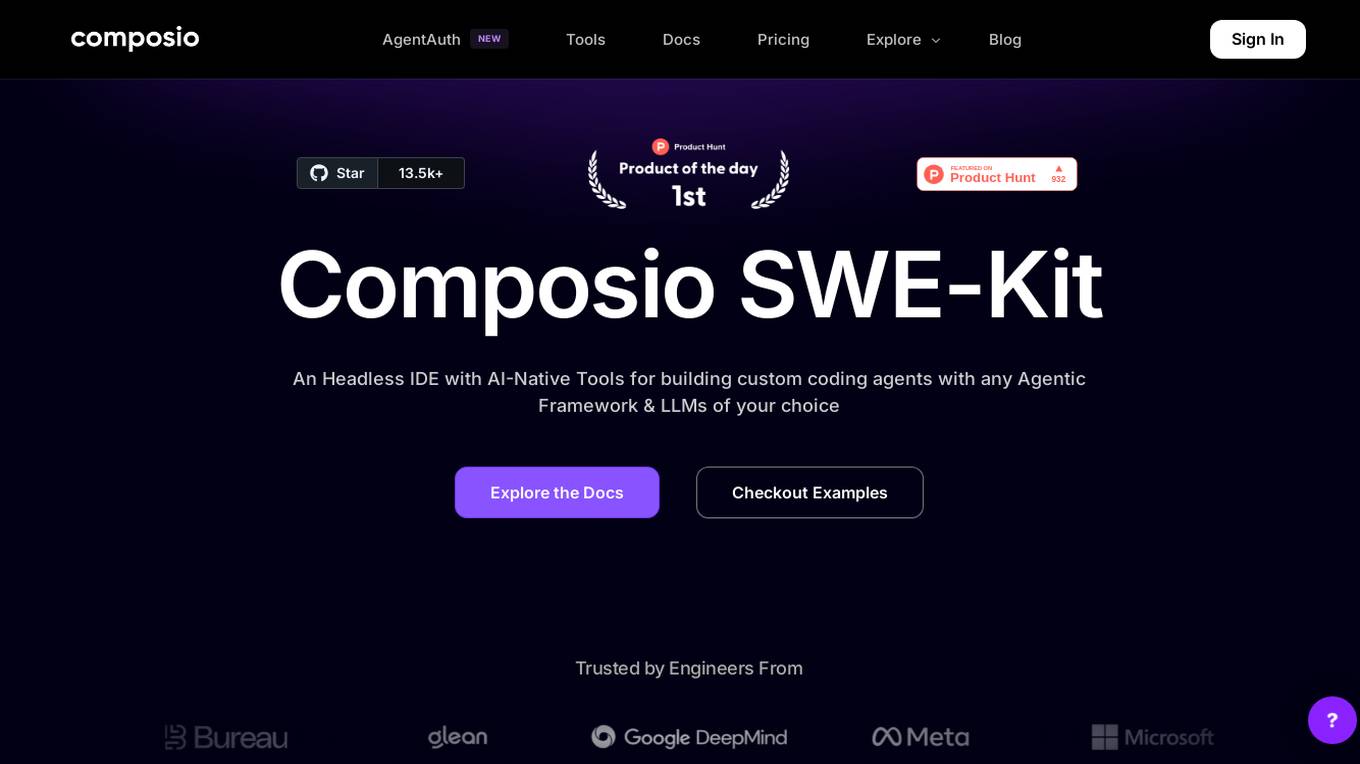
SWE Kit
SWE Kit is an open-source headless IDE designed for building custom coding agents with state-of-the-art performance. It offers AI-native tools to streamline the coding review process, enhance code quality, and optimize development efficiency. The application supports various agentic frameworks and LLM inference providers, providing a flexible runtime environment for seamless codebase interaction. With features like code analysis, code indexing, and third-party service integrations, SWE Kit empowers developers to create and run coding agents effortlessly.
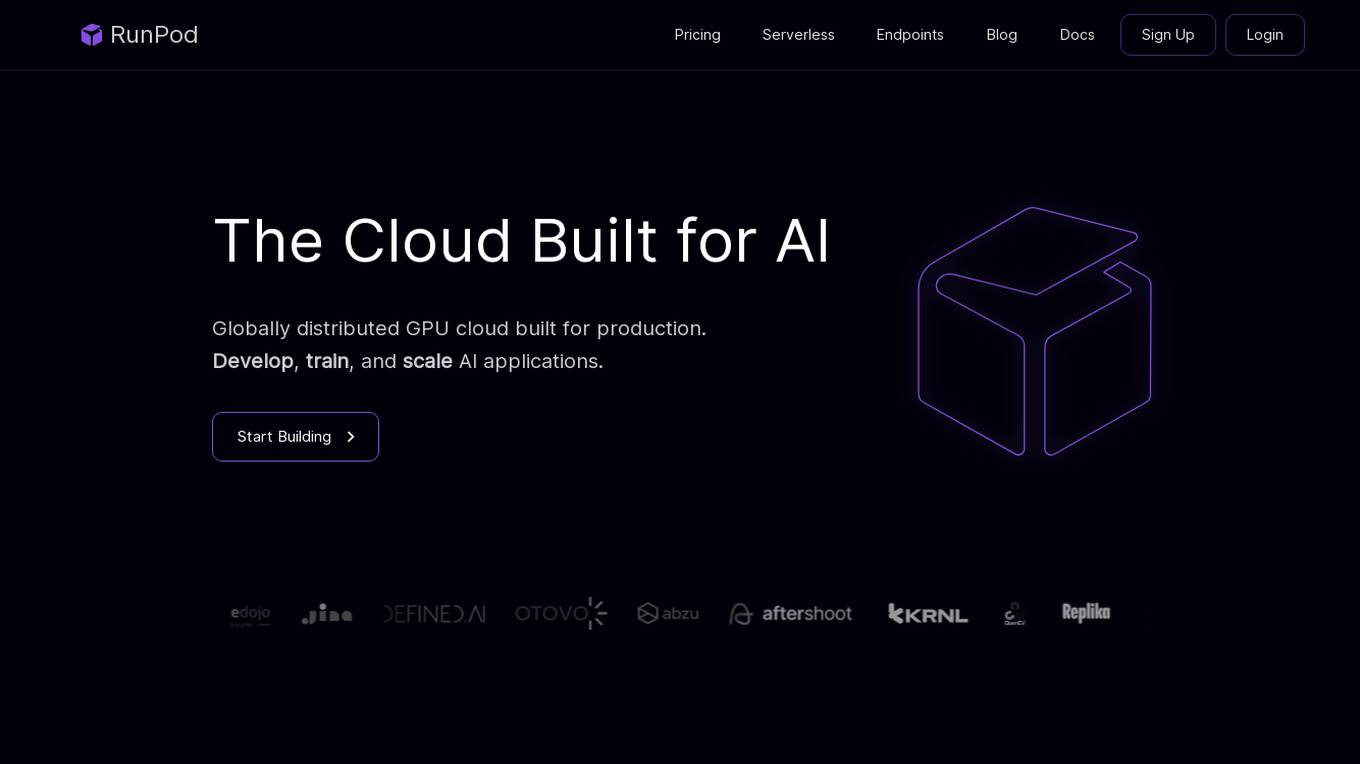
RunPod
RunPod is a cloud platform specifically designed for AI development and deployment. It offers a range of features to streamline the process of developing, training, and scaling AI models, including a library of pre-built templates, efficient training pipelines, and scalable deployment options. RunPod also provides access to a wide selection of GPUs, allowing users to choose the optimal hardware for their specific AI workloads.
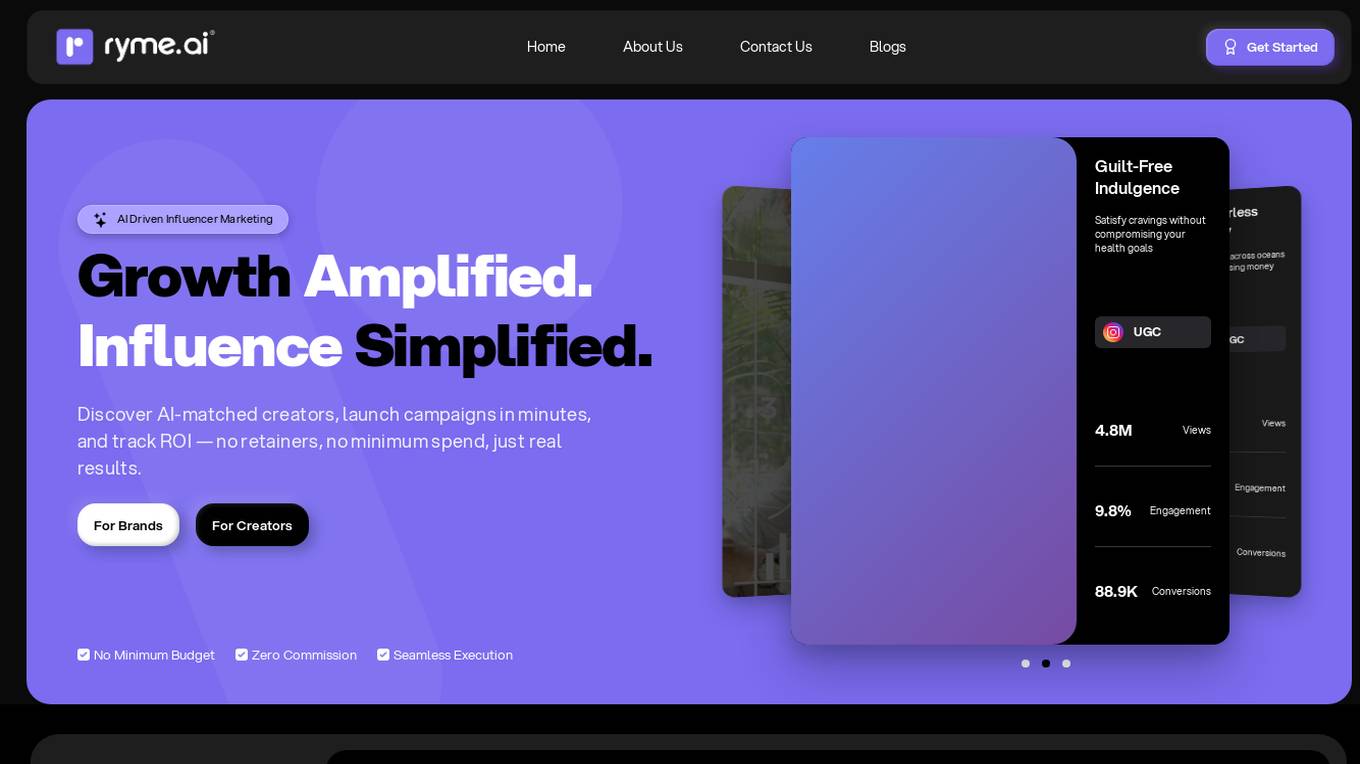
ryme.ai
ryme.ai is an AI-driven influencer marketing platform based in India. It simplifies the process of influencer marketing by providing a platform to discover AI-matched creators, launch campaigns quickly, and track ROI efficiently. The platform offers features such as AI-powered creator discovery, streamlined workflow for content approval, data-driven insights for performance tracking, and the ability to run campaigns with full cost control. ryme.ai aims to empower brands and creators to connect through innovative influencer marketing solutions, ultimately transforming marketing strategies and achieving impactful results.
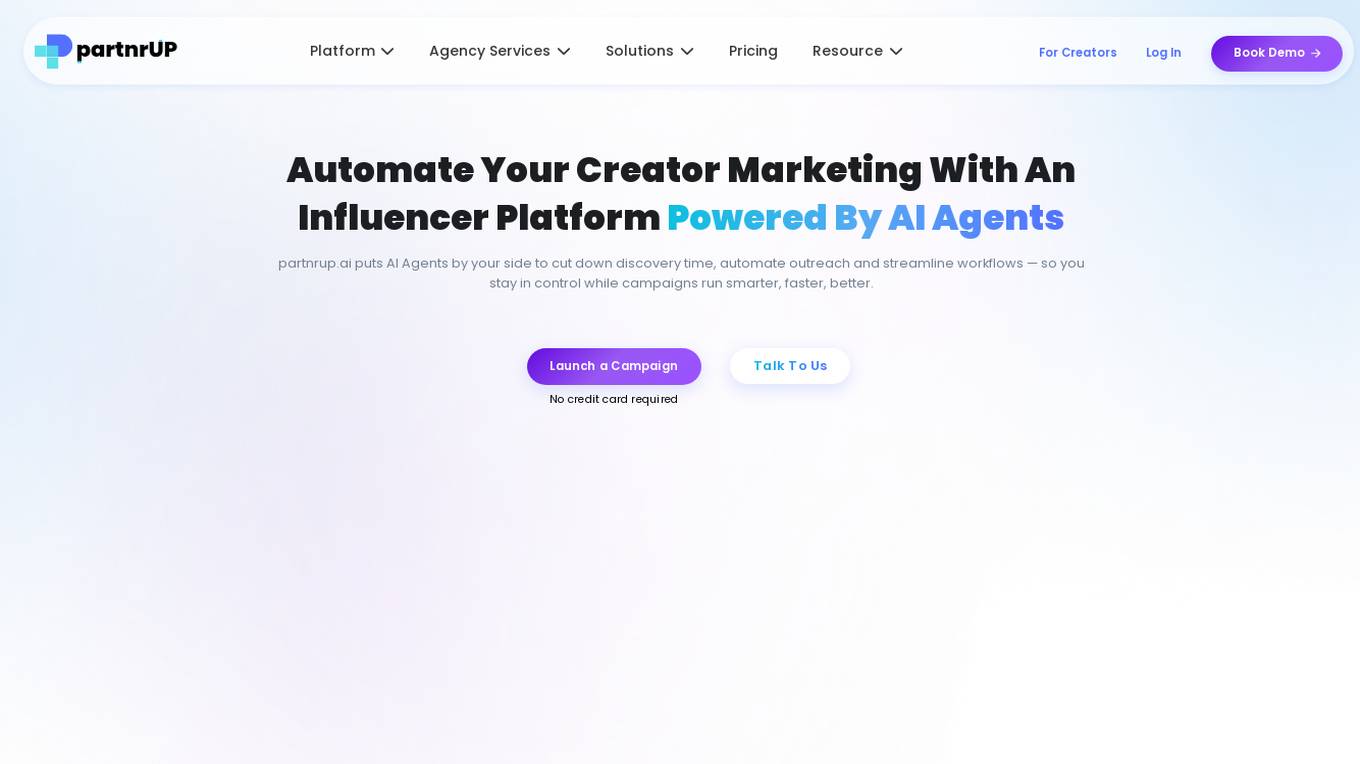
partnrUP
partnrUP is an AI-powered influencer marketing platform that automates the influencer marketing process from discovery to campaign management. It offers features such as AI influencer discovery, influencer recruitment, creator management, influencer gifting, AI creative briefs, campaign management, content management, content performance analytics, retail page syndication, and customer user-generated content. The platform helps brands source creators, run campaigns, track results, and turn influence into measurable growth. partnrUP caters to startups, midmarket businesses, enterprises, and agencies, providing solutions for influencer marketing, full funnel management, ambassador pages, affiliate programs, and commerce enablement. It offers fully managed services without overhead, resulting in higher creator response rates, less time spent on coordination, and improved creator payment accuracy and compliance.
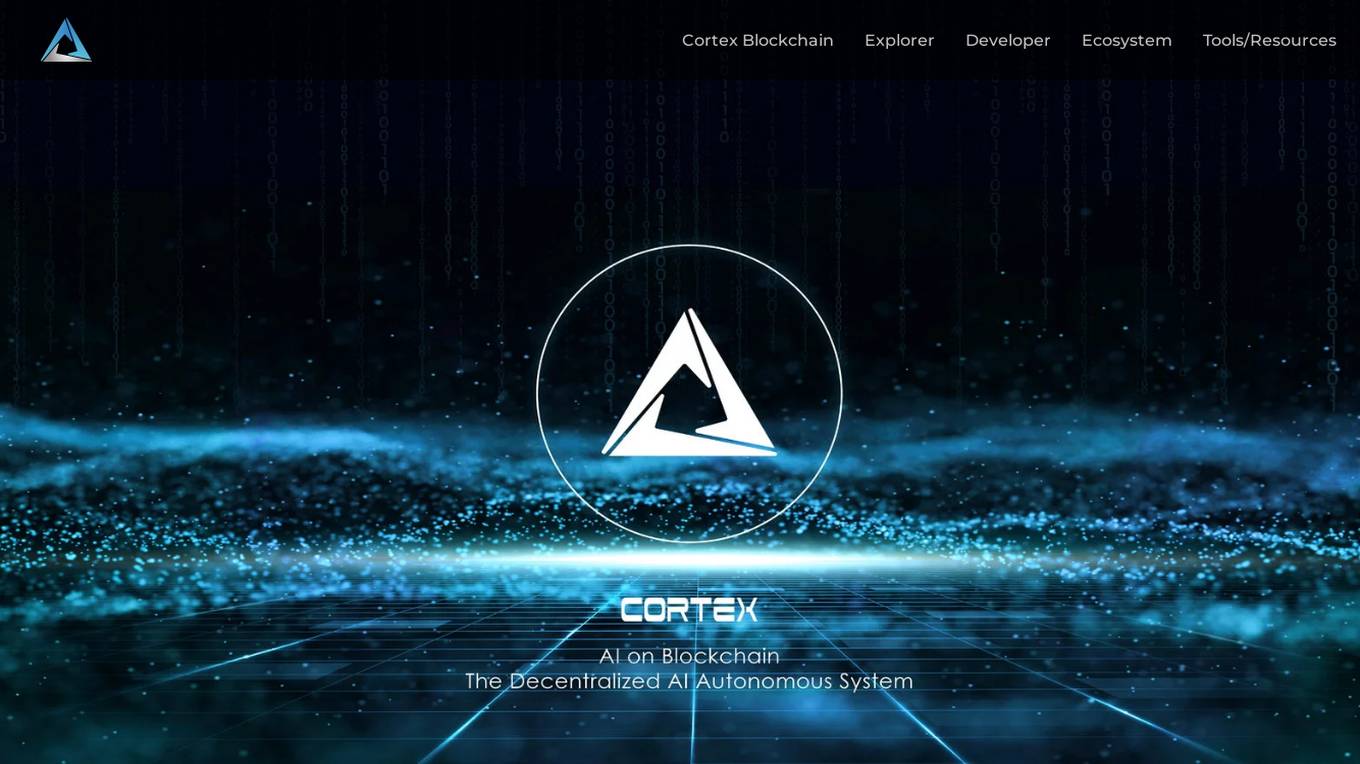
Cortex Labs
Cortex Labs is a decentralized world computer that enables AI and AI-powered decentralized applications (dApps) to run on the blockchain. It offers a Layer2 solution called ZkMatrix, which utilizes zkRollup technology to enhance transaction speed and reduce fees. Cortex Virtual Machine (CVM) supports on-chain AI inference using GPU, ensuring deterministic results across computing environments. Cortex also enables machine learning in smart contracts and dApps, fostering an open-source ecosystem for AI researchers and developers to share models. The platform aims to solve the challenge of on-chain machine learning execution efficiently and deterministically, providing tools and resources for developers to integrate AI into blockchain applications.
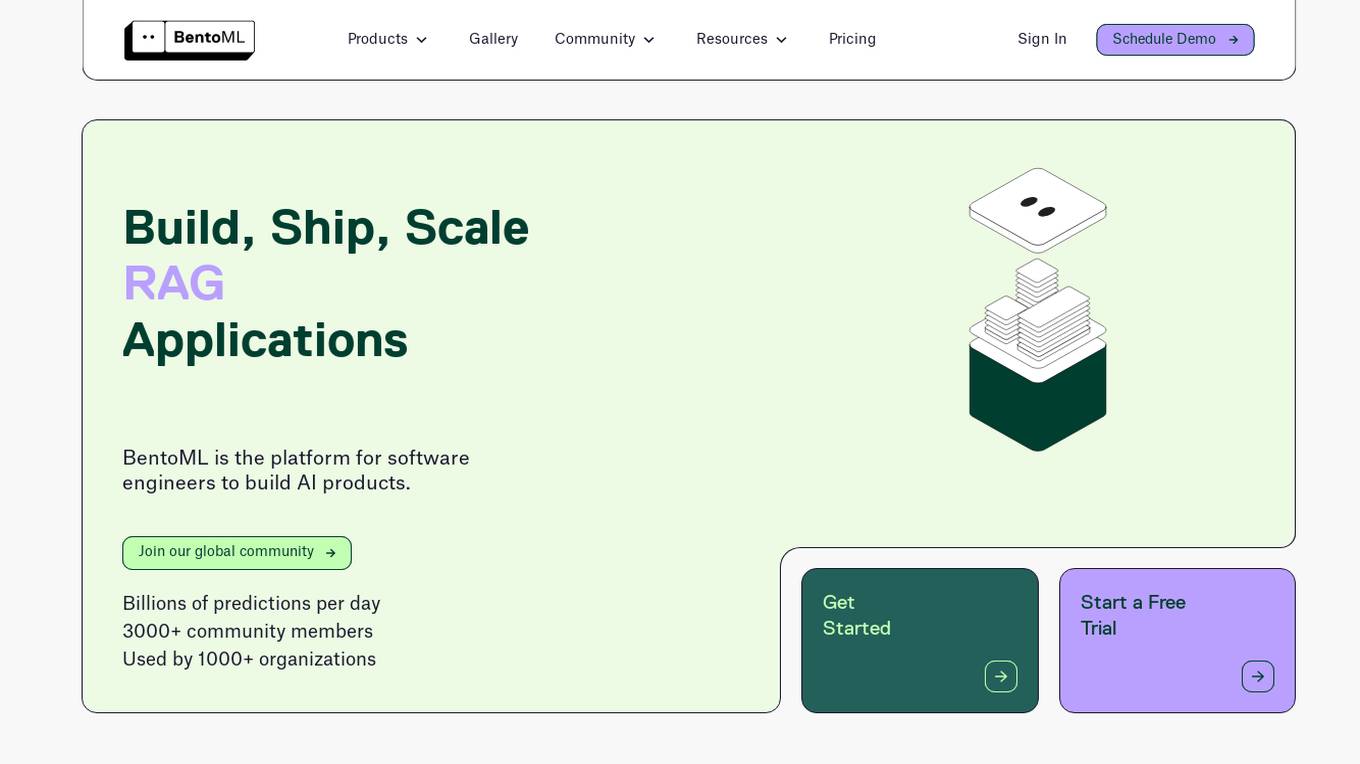
BentoML
BentoML is a platform for software engineers to build, ship, and scale AI products. It provides a unified AI application framework that makes it easy to manage and version models, create service APIs, and build and run AI applications anywhere. BentoML is used by over 1000 organizations and has a global community of over 3000 members.

NVIDIA Run:ai
NVIDIA Run:ai is an enterprise platform for AI workloads and GPU orchestration. It accelerates AI and machine learning operations by addressing key infrastructure challenges through dynamic resource allocation, comprehensive AI life-cycle support, and strategic resource management. The platform significantly enhances GPU efficiency and workload capacity by pooling resources across environments and utilizing advanced orchestration. NVIDIA Run:ai provides unparalleled flexibility and adaptability, supporting public clouds, private clouds, hybrid environments, or on-premises data centers.
1 - Open Source AI Tools
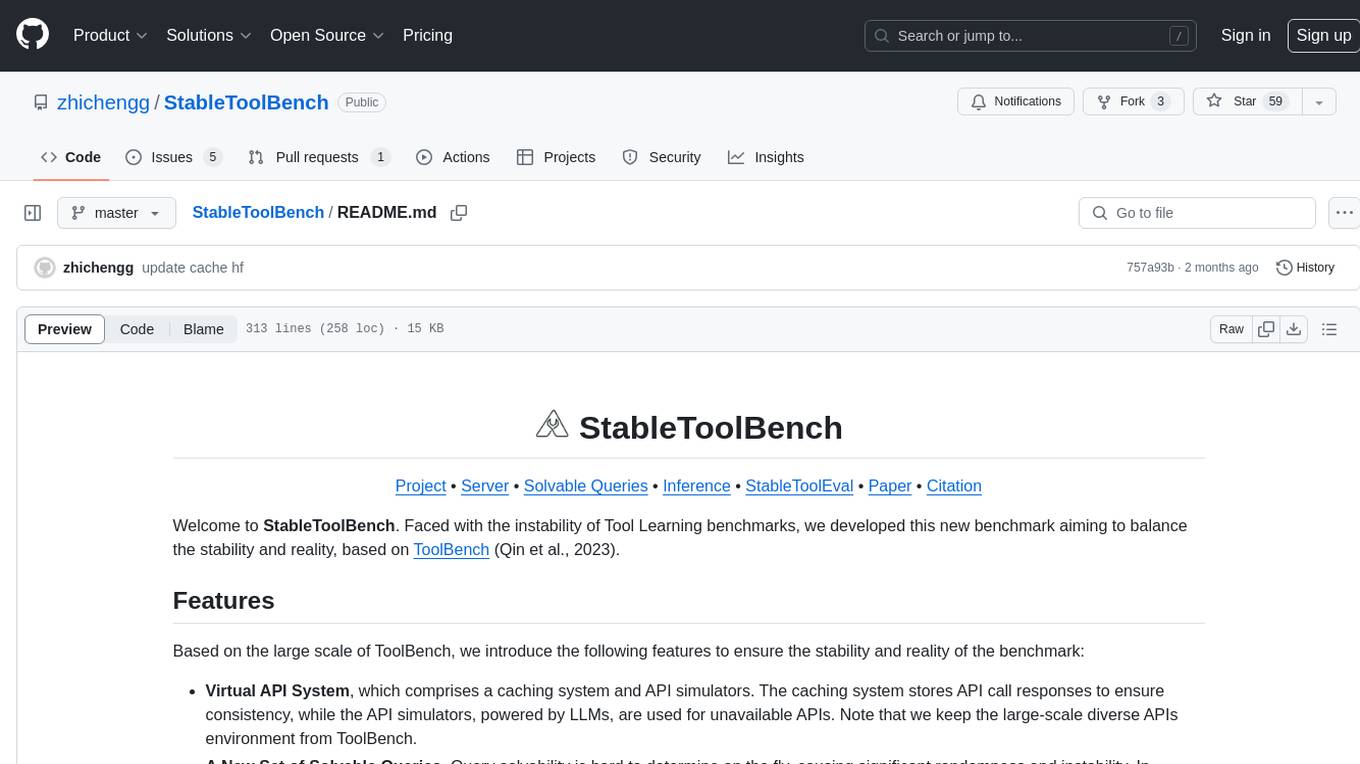
StableToolBench
StableToolBench is a new benchmark developed to address the instability of Tool Learning benchmarks. It aims to balance stability and reality by introducing features such as a Virtual API System with caching and API simulators, a new set of solvable queries determined by LLMs, and a Stable Evaluation System using GPT-4. The Virtual API Server can be set up either by building from source or using a prebuilt Docker image. Users can test the server using provided scripts and evaluate models with Solvable Pass Rate and Solvable Win Rate metrics. The tool also includes model experiments results comparing different models' performance.
20 - OpenAI Gpts

Consulting & Investment Banking Interview Prep GPT
Run mock interviews, review content and get tips to ace strategy consulting and investment banking interviews

Dungeon Master's Assistant
Your new DM's screen: helping Dungeon Masters to craft & run amazing D&D adventures.

Database Builder
Hosts a real SQLite database and helps you create tables, make schema changes, and run SQL queries, ideal for all levels of database administration.

Restaurant Startup Guide
Meet the Restaurant Startup Guide GPT: your friendly guide in the restaurant biz. It offers casual, approachable advice to help you start and run your own restaurant with ease.

Community Design™
A community-building GPT based on the wildly popular Community Design™ framework from Mighty Networks. Start creating communities that run themselves.

Code Helper for Web Application Development
Friendly web assistant for efficient code. Ask the wizard to create an application and you will get the HTML, CSS and Javascript code ready to run your web application.

Creative Director GPT
I'm your brainstorm muse in marketing and advertising; the creativity machine you need to sharpen the skills, land the job, generate the ideas, win the pitches, build the brands, ace the awards, or even run your own agency. Psst... don't let your clients find out about me! 😉

Pace Assistant
Provides running splits for Strava Routes, accounting for distance and elevation changes
